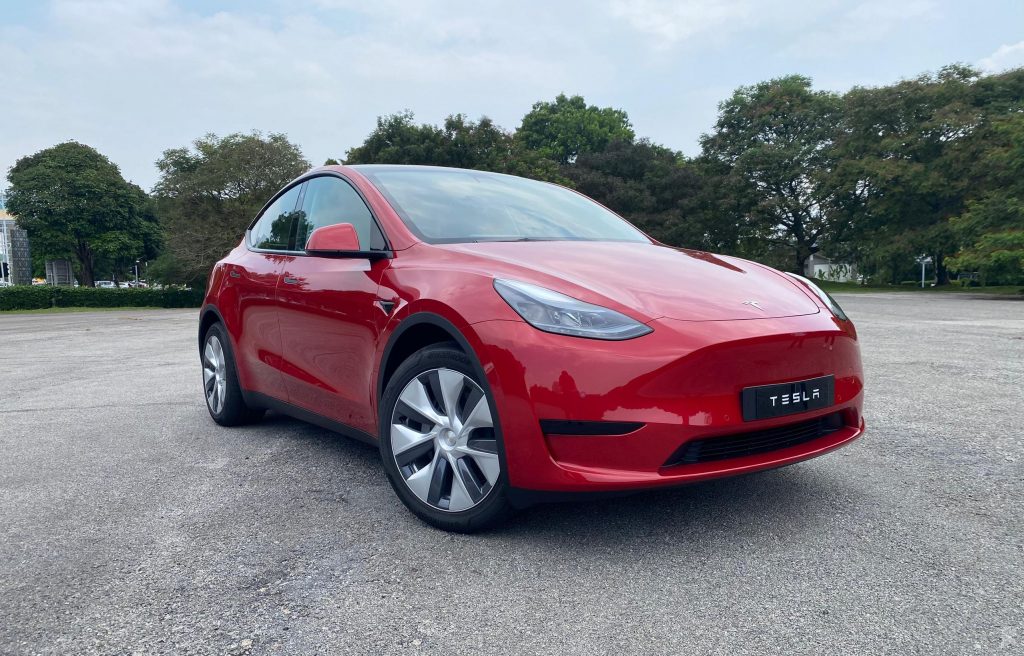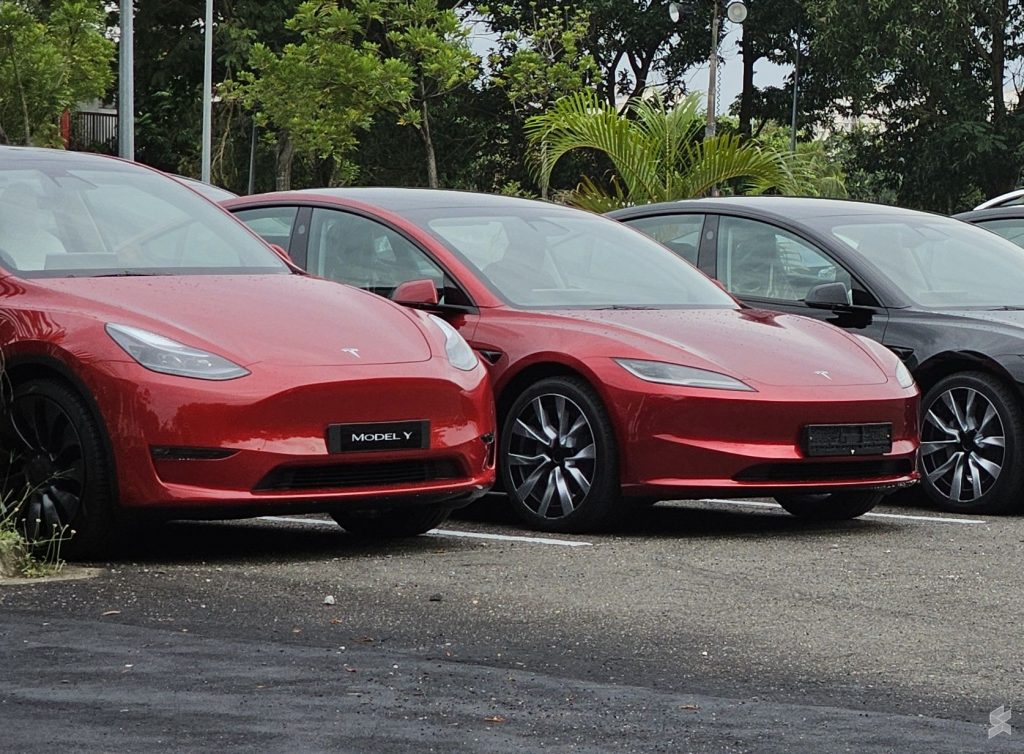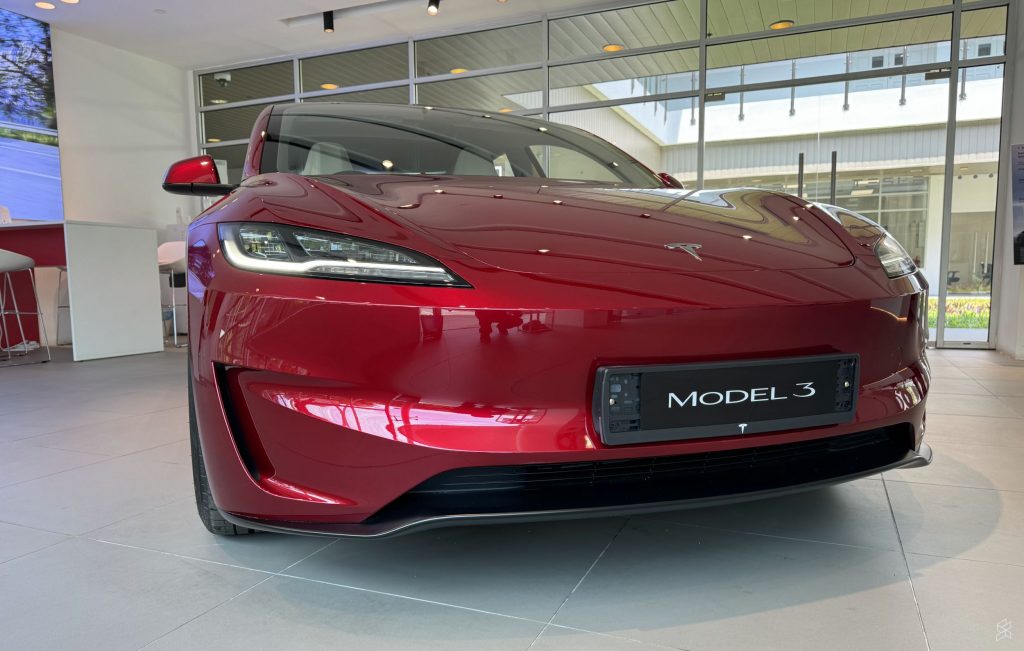The Ministry of Transport has finally revealed its new road tax formula for electric vehicles (EV). Compared to the old formula, the road tax for EVs is significantly cheaper and it helps to make EV ownership more affordable. The road tax calculation is based on the rated power output of the motor, and that’s something that Tesla doesn’t advertise on their website and spec sheet.
If you plan to own or if you currently own a Tesla EV in Malaysia, here are the power output figures from JPJ and how much road tax you’ll have to pay starting from 2026.
Tesla Model 3 Malaysia power output and road tax
- Tesla Model 3 RWD – 208kW (279hp) – RM280
- Tesla Model 3 Long Range AWD – 366kW (491hp) – RM865
- Tesla Model 3 Performance AWD – 461kW (618hp) – RM1,640
It is interesting to point out that the Tesla Model 3 Performance for Malaysia is advertised with just 460hp (supposedly 343kW) on its website, but JPJ has rated the vehicle with a whopping 461kW (618hp). Even the Long Range AWD model is rated at 366kW (491hp) which is still higher than the advertised output for the Model 3 Performance.
Although the Performance model (0-100km/h in 3.1 seconds) is just 1.3 seconds quicker from 0-100km/h than the Long Range Model (0-100km/h in 4.4), the road tax cost is double. Of course, the Performance model provides better adaptive suspension and you do get a higher top speed of 261km/h if that’s something that matters a lot to you.
Tesla Model Y Malaysia power output and road tax

- Tesla Model Y RWD – 220kW (295hp) – RM305
- Tesla Model Y Long Range AWD – 378kW (507hp) – RM915
- Tesla Model Y Performance AWD – 393kW (527hp) – RM1,015
For the popular SUV option, the Tesla Model Y generally produces more power for the RWD and Long Range AWD variants compared to the upgraded Tesla Model 3. The base RWD model that produces 220kW calculates to RM305 for road tax. Meanwhile, the Performance model with a rated 393kW output costs RM1,015, which is RM625 cheaper than the upgraded Tesla Model 3 Performance.
More power costs you more money

With the new road tax structure, EVs with an insane amount of power will require you to pay more as the incremental cost per block rises sharply as you go up the power brackets. Take, for example, the Tesla Model 3 RWD which has a single motor that pushes a respectable 279hp only costs RM280 annually for road tax. The moment you opt for a dual-motor long-range option which produces approximately 75% more power, the annual road tax suddenly triples to RM865.
If we do the math for road tax cost per kW, the Tesla Model 3 RWD with 208kW is essentially RM1.35 per kW, while the road tax for the Tesla Model 3 Performance with 461kW is equivalent to RM3.56 per kW.
If you’re deciding on which model of EV to get, you should really ask yourself, do you need an EV with 400 or 500hp (300kW and above)? EVs are generally much quicker than normal petrol cars as the electric motor can provide you with instant torque from the get-go. For most people, we would recommend getting an EV equipped with a decently powerful single motor and a big battery which will provide you with extended range on a single charge.
Not only you can go further and travel more efficiently, but the lower road tax does help to reduce your total cost of ownership in the long run. Imagine this, if you get the Model 3 Long Range instead of the Model 3 Performance, you are saving RM775 in road tax each year. That amount can be used to buy an annual EV charging network membership which provides not just a discounted EV charging rate but is also tax deductible.
EVs are currently exempted from road tax until 2025 and road tax fees will apply from starting from 1st January 2026.







